Search
for
Sort by
Research
540-570 / 1000+ results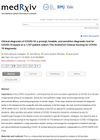
research Clinical Diagnosis of COVID-19: A Prompt, Feasible, and Sensitive Diagnostic Tool Based on a 1,757-Patient Cohort (The AndroCoV Clinical Scoring for COVID-19 Diagnosis)
The study concludes that the new clinical scoring system is a quick, low-cost, and accurate method for diagnosing COVID-19.

research Can We Predict Prostate Size by Scoring Baldness? The Relationship of Androgenic Alopecia and Lower Urinary Tract Symptoms
Baldness score can't be used to predict prostate size.
research Can We Predict Prostate Size by Scoring Baldness? The Relationship of Androgenic Alopecia and Lower Urinary Tract Symptoms
research A Qualitative Study to Assess the Effectiveness of Laser Epilation Using a Quality-of-Life Scoring System
Laser hair removal greatly improves quality of life.
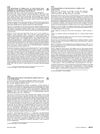
research Scalp Photodamage in Balding Men: An Observational Study Combining a Novel Clinical Scoring Method with Estimation of Individual Sun Exposure History and Risk Factors
The study concluded that a new method can effectively assess scalp sun damage in balding men, which increases with age and sun exposure.

research The Clinical Management of Hirsutism
The document concludes that managing hirsutism involves identifying the cause, using a scoring system for severity, combining cosmetic and medical treatments, encouraging weight loss, and providing psychological support, while noting the need for more research on drug treatments.

research Trichoscopic Evaluation of Dental Pulp Stem Cell Conditioned Media for Androgenic Alopecia
Hair loss treatment using stem cells from baby teeth was effective for 75% of men tested, with mild side effects. A scoring system may predict how well this treatment works.

research The Changing Landscape of Managing Hair Loss: A 30-Year Perspective
There have been major advances in diagnosing and treating hair loss over the last 30 years, with new drugs and improved hair transplant techniques.

research Development of a Core Set Questionnaire by the European Society of Cutaneous Lupus Erythematosus
The European Society of Cutaneous Lupus Erythematosus created a questionnaire to standardize patient assessment and improve care for cutaneous lupus.

research Relapse of Hirsutism Following Long-Term Successful Treatment with Estrogen-Progestogen Combination
Most patients experienced hirsutism again after stopping hormone treatment, indicating long-term treatment is needed to maintain results.
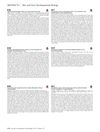
research Applying FACS-Based Single Cell RNA-Seq to Study Neonatal Mouse Skin
Researchers improved a method to study individual cells in newborn mouse skin and found a way to assess the severity of a skin condition in humans.

research Assessment of Hair Loss: Clinical Relevance of Hair Growth Evaluation Methods
Effective hair loss assessment requires a mix of precise measurement methods.

research Oral Tofacitinib: A Promising Treatment in Atopic Dermatitis, Alopecia Areata, and Vitiligo
Oral tofacitinib shows promise in treating atopic dermatitis and alopecia areata, but only slight improvement in vitiligo.
research A Genome-Wide Association Study of Chemotherapy-Induced Alopecia in Breast Cancer Patients
A specific gene variant is linked to a higher risk of hair loss from chemotherapy in breast cancer patients.

research A Pilot Study to Evaluate Effectiveness of Botulinum Toxin in Treatment of Androgenetic Alopecia in Males
Botulinum toxin was found to be a safe and effective treatment for male pattern baldness in a small test, but more research is needed.
research FASCE: The Benefit of Spironolactone for Treating Acne in Women - Study Protocol for a Randomized Double-Blind Trial
The trial aims to test if spironolactone is an effective acne treatment for women without the side effects of current treatments.

research Preparation and Clinical Evaluation of Finasteride Gel in the Treatment of Idiopathic Hirsutism
Finasteride gel effectively and safely reduces hair thickness in women with excessive hair growth.

research Exhaustive Analysis of Scalp Hair Regression: Subjective and Objective Perception from Initial Hair Loss to Severe Miniaturization and Drug-Induced Regrowth
Hair loss reduces hair thickness and coverage, but drug treatments mainly revive dormant hairs rather than reverse thinning; patients often undervalue their hair loss severity.

research Criticizing Modified Ferriman-Gallwey Scoring System in the Evaluation of Hirsutism in 1034 Turkish Women
The study suggests using a score of 11 on the mFG scale to diagnose hirsutism in Turkish women, with adjustments for age, skin type, and family history.

research Principles of Management of Women with Hirsutism: A Dermatologist’s Perspective
The conclusion is that hirsutism in women can be managed with hair removal techniques, medications, and topical treatments.

research Comparison of Finasteride Versus Spironolactone in the Treatment of Idiopathic Hirsutism
Spironolactone is more effective than finasteride in treating excessive hair growth in women.
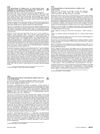
research Schimmelpenning Syndrome with Didymosis Aplasticosebacea in a One-Month-Old Girl
Older men's scalp damage increases with age and sun exposure, a baby girl in the Philippines has Schimmelpenning syndrome, and thyroid screening is advised for children with hair loss and certain risk factors.

research Hair Diameter Diversity: A Clinical Sign Reflecting Follicle Miniaturization
Different thicknesses of hair strands can indicate the severity of hair thinning.

research Effects of Cyclosporine A on Clinical and Histologic Abnormalities in Dogs with Sebaceous Adenitis
Cyclosporine A can reduce inflammation in dogs with sebaceous adenitis, but ongoing treatment is needed.
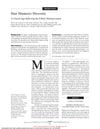
research Lonely Hair Sign: Not Specific for Frontal Fibrosing Alopecia
Hair diameter diversity is a key sign for diagnosing and managing male pattern baldness.
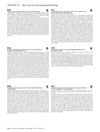
research Spatiotemporal Antagonism in Mesenchymal-Epithelial Signaling in Sweat Versus Hair Fate Decision
Sweat glands and hair follicles are determined by opposing signals, with BMPs promoting sweat glands and blocking BMPs leading to hair follicles.
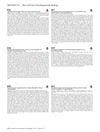
research Histologic and Immunohistochemical Evaluation of Lichen Planopilaris and Correlation with Clinical Disease Severity
The study found a link between the severity of Lichen Planopilaris seen by doctors and the details seen under a microscope, and created a new way to measure this severity.

research The Diagnosis of Polycystic Ovary Syndrome: The Criteria Are Insufficiently Robust for Clinical Research
The current methods for diagnosing polycystic ovary syndrome are too vague and may lead to misdiagnosis and problems in research.

research SARS-CoV-2-Induced Telogen Effluvium: A Multicentric Study
COVID-19 infection may cause significant hair loss, but full hair recovery is likely without special treatment.